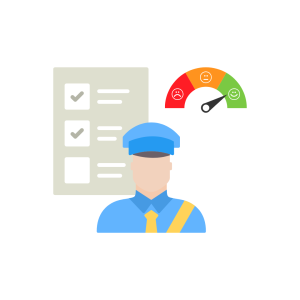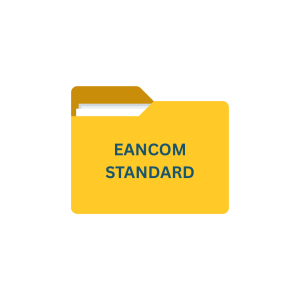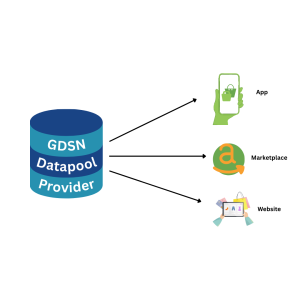Introduction
Electronic Data Interchange (EDI) has become a vital technology for businesses seeking to automate and streamline their operations. From large multinational corporations to small and medium-sized enterprises, a diverse range of companies across various industries have embraced EDI to enhance efficiency, accuracy, and collaboration.
Here is the list of industries that use EDI in their business every day,
Key Takeaways
- EDI (Electronic Data Interchange) is widely used across industries to streamline operations and improve data accuracy.
- Retail, manufacturing, healthcare, logistics, and finance are major industries using EDI daily.
- EDI enhances efficiency by automating order processing, inventory management, and invoicing.
- It helps organizations comply with industry standards and reduces manual errors in data exchange.
- The adoption of EDI supports faster and more reliable business transactions across the supply chain.
1. Retail and Consumer Goods Industry
In the retail and consumer goods sector, EDI plays a critical role in enabling efficient supply chain management, order fulfillment, and inventory control. Examples of companies using EDI in this industry include:
Retailers: Major retail chains like Walmart and Target leverage EDI to automate purchase order exchanges with suppliers receive advanced shipping notices (ASNs), and process invoices. EDI streamlines the order-to-cash cycle, improves inventory management, and enhances collaboration with suppliers.
Consumer Goods Manufacturers: Companies such as Procter & Gamble and Unilever utilize EDI to transmit electronic invoices, receive purchase orders, and manage product catalog updates with their retail customers. EDI facilitates seamless communication and data synchronization between manufacturers and retailers, reducing manual effort and improving order accuracy.
Common Transactions: Retailers use EDI to exchange purchase orders (POs) 850s, advance shipping notices (ASNs) 856s, and invoices 810s with suppliers.
2. Automotive Industry
In the automotive industry, EDI is instrumental in supporting just-in-time manufacturing, and supply chain integration. Prominent examples include:
Automotive Manufacturers: Companies like Ford and General Motors employ EDI to exchange purchase orders, shipment notices, and invoices with their suppliers. EDI enables real-time visibility into the supply chain, facilitates efficient production planning, and supports the timely delivery of parts and components.
Automotive Parts Suppliers: Suppliers such as Bosch and Delphi utilize EDI to receive electronic purchase orders, transmit advanced shipping notices, and generate electronic invoices. EDI automation streamlines order processing enhances inventory management and improves overall operational efficiency.
Common Transactions: Automotive companies use EDI for vehicle shipping orders (EDI 120), vehicle service (EDI 121), vehicle damage (EDI 124), vehicle buying order (EDI 127) and more.
3. Healthcare Industry
In the healthcare sector, EDI is vital for efficient claims processing, medical billing, and supply chain management. Key examples include:
Healthcare Providers: EDI in healthcare helps hospitals, clinics, and healthcare organizations utilize EDI to transmit electronic claims to insurance companies, receive remittance advice, and manage medical billing processes. EDI automation speeds up claims processing, reduces errors, and accelerates payment cycles.
Pharmaceutical Companies: Pharmaceutical manufacturers leverage EDI to automate purchase order exchanges, shipment notifications, and invoices with distributors and healthcare providers. EDI integration improves supply chain visibility, enhances inventory management, and facilitates accurate order fulfillment.
Common Transactions: Healthcare providers rely on EDI for submitting claims (EDI 837), receiving claim status updates (EDI 276/277), and eligibility verification (EDI 270/271).
4. Logistics and Transportation Industry
In the transportation sector, EDI helps with optimizing freight management, tracking, and supply chain coordination. Examples include:
Freight Forwarders: Companies like DHL and UPS employ EDI to exchange shipping instructions, track and trace information, and transmit customs documentation. EDI streamlines the logistic process, enhances shipment visibility, and enables seamless coordination between different stakeholders.
Transportation Carriers: Trucking companies, airlines, and shipping lines utilize EDI to exchange electronic freight manifests, bills of lading, and delivery confirmations with their customers and partners. EDI automation improves data accuracy, expedites document processing, and enhances overall operational efficiency.
Common Transactions: Logistics companies frequently use logistics service requests (EDI 219), logistic service response (EDI 220), purchase order shipment management (EDI 250), shipment and billing advice (EDI 857) and more.
5. Manufacturing Industry
In the manufacturing sector, EDI is used for supply chain management, procurement, and production planning. Examples include:
Original Equipment Manufacturers (OEMs): Companies like Boeing and Siemens utilize EDI to streamline procurement processes, receive purchase orders from suppliers, and exchange shipment notifications. EDI automation improves procurement efficiency, enhances supplier collaboration, and facilitates seamless material flow.
Component Suppliers: Suppliers of components, such as electronic parts or raw materials, leverage EDI to transmit product catalogs, receive purchase orders, and exchange invoices with OEMs. EDI integration enables accurate order processing, enhances inventory control, and supports just-in-time manufacturing.
Common Transactions: EDI transactions in manufacturing include Inventory inquiry (EDI 846), product activity data (EDI 852), product transfer and release report (EDI 867), and more.
6. Financial Services Industry
In the financial services sector, EDI is utilized to streamline banking operations, payment processing, and financial data exchange. Examples include:
Banks and Financial Institutions: Banks use EDI to facilitate secure electronic funds transfers, automate payment processing, and exchange financial messages with other banks. EDI integration enables faster transaction processing, reduces manual errors, and enhances data security.
Insurance Companies: Insurance providers leverage EDI to automate claims processing, receive electronic policy applications, and exchange policy information with agents and brokers. EDI streamlines the insurance lifecycle, accelerates claims settlement, and improves customer service.
Common Transactions: EDI transactions in the banking and financial industry include credit/debit adjustment (EDI 812), payment order remittance (EDI 820), application advice (EDI 824) and more.
7. Technology Industry
In the technology sector, EDI is utilized for efficient supply chain management, order fulfillment, and product information exchange. Examples include:
Electronics Manufacturers: Companies like Apple and Samsung employ EDI to automate order processing, receive purchase orders from retailers, and exchange shipment notifications. EDI integration streamlines supply chain operations, reduces lead times and improves order accuracy.
Software Providers: Software companies leverage EDI to automate software license management, receive purchase orders from customers, and exchange electronic product updates. EDI facilitates efficient software distribution, enhances license compliance, and supports timely software delivery.
Common Transactions: The tech industry uses EDI for POs, ASNs, and invoices, enabling quick response times in sourcing and delivering complex tech components.
8. Pharmaceutical Industry
EDI in the pharma industry helps with, regulatory compliance, and order processing in the pharmaceutical sector. Examples include:
Pharmaceutical Wholesalers: Wholesalers such as McKesson and AmerisourceBergen utilize EDI to automate exchange purchase orders, shipment notifications, and invoices with pharmaceutical manufacturers and retailers. EDI integration streamlines order fulfillment improves inventory management and enhances collaboration with trading partners.
Distributors and Retail Pharmacies: Distributors and retail pharmacies leverage EDI to automate ordering processes, receive electronic product catalogs, and exchange shipping notices with pharmaceutical manufacturers and wholesalers. EDI enables accurate and timely order processing, enhances supply chain visibility, and improves inventory control.
Common Transactions: Pharmaceuticals rely on ASNs, invoices, and batch tracking for items like active ingredients, which ensures product quality and safety.
9. Food and Beverage Industry
In the food and beverage sector, EDI facilitates efficient supply chain operations, order fulfillment, and traceability. Examples include:
Food Manufacturers: Companies like Nestlé and Kraft Heinz use EDI to automate purchase order exchanges, receive shipment notifications, and process invoices with their retail customers and distributors. EDI integration improves order accuracy, reduces order processing time, and enhances collaboration in the food supply chain.
Food Retailers: Retailers in the food and beverage industry, such as Walmart and Kroger, leverage EDI to automate the ordering process, receive electronic invoices, and exchange inventory information with their suppliers. EDI enables accurate order fulfillment, enhances shelf availability, and supports efficient inventory management.
Common Transactions: EDI transactions used in the food and beverage industry include return merchandise authorization and notification (EDI 180), price/sales catalog (EDI 832), Cooperative advertising agreement (EDI 290) and more.
10. E-commerce Industry
In the e-commerce sector, EDI is used to automate order processing, inventory management, and fulfillment processes. Examples include:
Online Retailers: E-commerce giants like Amazon and Alibaba employ EDI to automate order placement, exchange shipping information, and process invoices with their suppliers. EDI integration enables seamless order fulfillment, improves order accuracy, and enhances supply chain efficiency.
Third-Party Logistics Providers: 3PL Logistics companies that specialize in e-commerce fulfillment utilize EDI to automate order receipt, shipment tracking, and delivery notifications. EDI enables real-time visibility into order status, facilitates efficient last-mile delivery, and enhances customer satisfaction.
Common Transactions: E-commerce businesses use EDI for purchase orders (EDI 850), warehouse shipping orders (EDI 940), ship notices (EDI 856), warehouse shipping advice (EDI 945), stock transfer inventory advice (EDI 943) and more.
11. Grocery Industry
In the grocery sector, EDI is instrumental in automating supply chain operations, order processing, and product traceability. Examples include:
Grocery Retailers: Supermarket chains such as Walmart and Kroger utilize EDI to automate order management, exchange shipment information, and process invoices with their suppliers. EDI integration streamlines inventory replenishment reduces out-of-stock situations and enhances collaboration in the grocery supply chain.
Food Suppliers: Food suppliers and distributors leverage EDI to receive electronic purchase orders, exchange shipping notices, and transmit invoices to grocery retailers. EDI automation improves order accuracy, accelerates order-to-cash cycles, and enhances visibility into the supply chain.
Common Transactions: The grocery sector uses POs, ASNs, and invoices frequently to manage order volumes and reduce stockouts, especially for high-demand goods.
Conclusion
Companies across a wide range of industries have embraced EDI to automate and streamline their business processes. From retail and consumer goods to automotive, healthcare, and logistic operations, EDI offers significant benefits in terms of improved efficiency, enhanced collaboration, and increased accuracy. Whether optimizing supply chain management, streamlining order fulfillment, or expediting claims processing, the examples provided highlight how different industries leverage EDI to drive operational excellence and gain a competitive edge in today’s digital landscape.
Need Help? Download: EDI Buyers Guide
Unlock the full potential of your supply chain with our comprehensive EDI Buyer's Guide — your first step towards seamless, efficient, and error-free transactions
Commport EDI Solutions
Frequently Asked Questions
EDI enables the automotive sector to follow a JIT model by ensuring parts and materials arrive exactly when needed. This minimizes inventory holding costs and avoids production delays. Key EDI transactions like purchase orders and shipping notifications allow real-time coordination between manufacturers and suppliers.
In healthcare, EDI is used for transmitting insurance claims, patient billing, eligibility verification, and payment processing. This not only speeds up administrative tasks but also improves data accuracy, reduces paperwork, and enables faster reimbursement cycles, which ultimately benefits healthcare providers and patients.
EDI in logistics enhances shipment tracking, inventory control, and route optimization, making the movement of goods more efficient and transparent. Common transactions like advance shipping notices (ASNs) and freight invoices streamline communications between logistics providers, suppliers, and clients, ensuring timely deliveries.
EDI helps pharmaceutical and food & beverage companies adhere to strict regulatory standards by enabling precise tracking of product batches, order processing, and quality control documentation. This traceability ensures compliance with health and safety guidelines, protecting consumers and reducing the risk of recalls.
In banking, EDI streamlines processes for electronic funds transfer (EFT), remittance advice, payroll deposits, and account management. It increases transaction accuracy and security while minimizing the need for manual handling, which enhances efficiency and provides customers with faster financial services.





